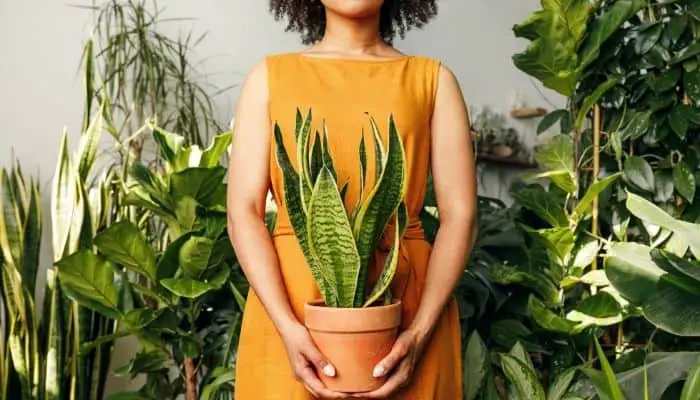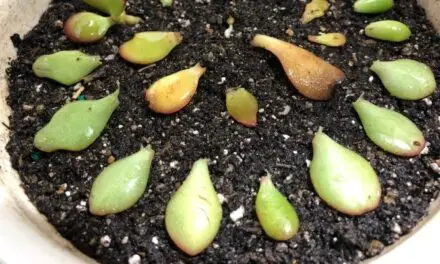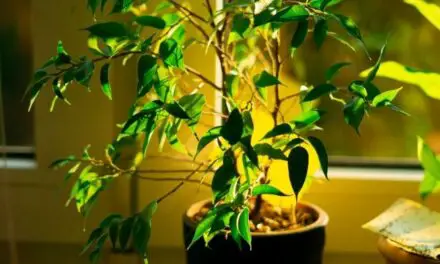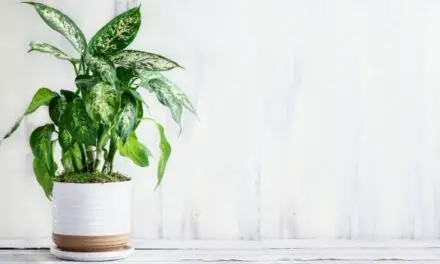We all understand that plants are living organisms, and as such, they respond to stimuli like touch and even sound.
Researchers now believe that plants can also make noise that goes beyond the rustling of leaves and branches in the wind.
Table of Contents
Why Is My Plant Making Noise?

New research suggests that your plant may emit ultrasonic screeches when it is stressed by drought or physical harm.
But these ultrasonic sounds are emitted at a frequency too high for us to hear.
Instead, you may be hearing a sucking sound that is caused by air escaping from the soil after you water it.
Some people mistakenly think that this is their plant making noise.
Plants Make Noise When They Are Stressed
Several studies have come out indicating that plants can make noise due to pain or stress.
However, these sounds are thought to be outside the range of human hearing.
It is thought that smaller animals may be able to hear it such as bats, mice, rats, and rabbits.
Much of this research is ongoing and still in the theory phase, so we don’t know exactly why and how plants make noise.
But, we do know it’s related to stress and pain.
This includes cutting or pruning, nibbling from animals, lacking water, lacking sun, and lacking nutrients.
Related Article: Can Plants Grow Without Water? (Full Explanation)
Plants Making Noise After Watering
Sometimes, just after you water your plant’s soil you may hear a sucking, crackling, or popping noise.
This is not the plant making noise.
It is the sound of air escaping from pockets within porous soil that is being filled with water.
After watering, the air gets slowly pushed up to the surface of the soil and makes those snap, crackle, and pop noises in the process.
Also, if your potting mix includes baked clay or turface, it may make a hissing sound when being watered.
Is It Normal For Plants To Make Noise?
Yes, it’s very normal for plants to make noise but very unusual for you to hear it.
In one study from Israel, they measured the noises made from tomato and tobacco plants.
The study examined the effects of underwatering and cutting on the plants.
Using an ultrasonic microphone to measure the sounds, researchers marked frequencies emitted from the plants at sound levels between 20 and 150 kHz (kilohertz).
Human hearing can reach around 28 kHz.
So, there is a possibility we may hear some plants emit sound, but not all (especially not smaller ones).
Then the scientists cut the tobacco plant and noted an average of 15 sounds over the course of an hour.
And the tomato plant emitted 25 high-frequency sounds within an hour.
Researchers even discovered that plants can make different sounds to indicate varying stressors.
Just as humans can say, “ouch” or “ah” at alternate degrees of pitch when hurt, plants have similar noises.
In fact, some researchers believe other plants can hear when a nearby plant screams.
How Are Plants Able To Make Noise?
It is not known for sure how plants can scream, yell, or screech but scientists do have some theories.
One possibility is how air bubbles fill the plant due to lack of water.
When the air bubbles pop, they make a noise from the vibration resulting from the burst.
But this theory doesn’t account for pain noises from injury.
What Types Of Plants Make Noise?
All types of plants can make noises when they are stressed or in pain.
It is thought that in general, the larger the plant, the more sound it will emit.
How Do You Get A Plant To Stop Making Noise?
Although the noises your plant makes are at too high a frequency for you to hear, you still may want to care for your plant so that it will not make any noises due to distress.
Ensure it’s getting all the sunlight, water, humidity, airflow, and nutrients it requires to thrive.
Check the leaves to see if there are any pests, diseases, or infestations.
If you have to prune, use a clean, sterilized sheer (including your fingers) and only cut away the dead growth.
Always give your plants good, pure water-free of chlorine, iron, sulfur, hydrogen sulfide, and fluoride.
You can let tap water set in open containers overnight to let many of these harmful chemicals evaporate.
What’s more, you want to ensure the plant has the right nutrients in the proper proportions concerning the needs of the plant.
This includes the NPK ratio of water as well as appropriate soil or planting media.
Final Thoughts
If you hear your plant making noise, it could be experiencing some kind of stressor.
But, be sure that your plant is making noise and it’s not the pot draining water or some breeze blowing on the foliage.
Even though we don’t fully understand how and why plants make noise, the possibilities are interesting for us to consider.
But one thing is certain, think twice before hurting plants. Don’t just rip off branches, stems, petals, and leaves.
If you wish to use the goodness a plant has to offer, wait for harvest time or when the plant drops its flowers, foliage, and fruits naturally.




